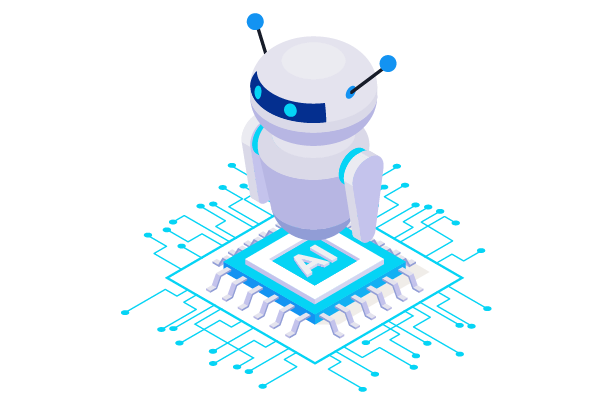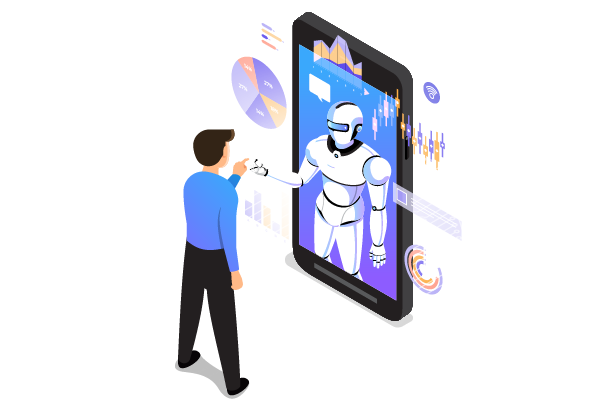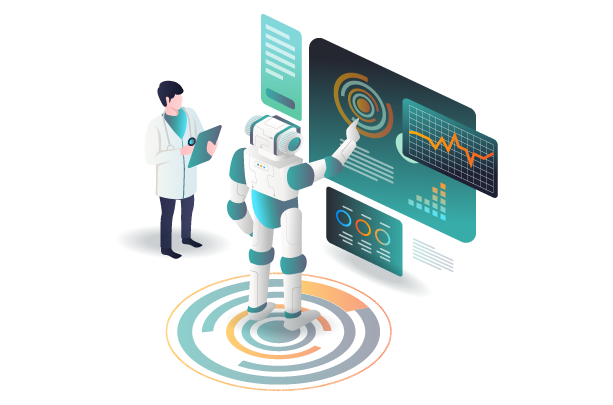Leverage the power of artificial intelligence and data-driven insights with our specialized Machine Learning services. Our skilled experts develop intelligent systems that make accurate predictions, optimize processes, and provide a competitive edge for your business.
Leverage the Power of AI and Data-Driven Insights with Our Advanced Machine Learning Solutions.

Our team specializes in developing machine learning models and algorithms tailored to your business needs, utilizing cutting-edge technologies to extract meaningful patterns and insights from your data, empowering you to make data-driven decisions with confidence.
Data Pre-processing and Feature Engineering
We ensure data quality and prepare it for analysis by applying advanced techniques in data cleaning, feature selection, and transformation. This ensures accurate model training and evaluation, leading to reliable and actionable insights.


We harness the power of deep learning algorithms and neural networks to solve complex problems, such as image recognition, natural language processing, and recommendation systems, enabling advanced AI-driven solutions tailored to your specific requirements.
Deployment and Integration
We assist in deploying and integrating machine learning models into your existing systems or developing custom applications, enabling seamless utilization of AI capabilities in your business workflows, driving automation and efficiency.


We provide ongoing support, monitoring, and maintenance of machine learning models to ensure their continued performance and adaptability in dynamic business environments, keeping your models up-to-date and delivering accurate results.
Harness the power of data-driven insights and make accurate predictions with our specialized machine learning services.

Machine learning offers numerous benefits to businesses across industries. By leveraging data-driven insights, businesses can gain a deeper understanding of their customers, optimize operations, and identify patterns and trends that may not be apparent through traditional analysis methods. With accurate predictions and recommendations, businesses can make informed decisions, tailor their strategies, and seize new opportunities. Machine learning also enables automation of repetitive tasks, freeing up valuable time and resources. Moreover, by adopting machine learning solutions, businesses can enhance efficiency, improve productivity, and stay ahead in a highly competitive market, ultimately leading to increased profitability and growth.
Machine learning can handle diverse types of data, such as structured data (organized in tables or databases), unstructured data (text, images, audio), and numeric data (continuous or discrete values). The choice of data depends on the specific problem being addressed and the desired outcomes. For example, in sentiment analysis, text data from customer reviews can be used to classify sentiment. In image recognition, image data is processed to identify objects or patterns. Machine learning algorithms are designed to handle different data types and can extract meaningful patterns and insights from the data, regardless of its format or structure.
The development time for a machine learning model can vary based on several factors. These include the complexity of the problem being addressed, the amount and quality of available data, the chosen algorithm and model architecture, and the desired level of performance. Developing a machine learning model typically involves tasks such as data preprocessing, feature engineering, model selection and training, hyperparameter tuning, and evaluation. Each of these steps requires time and iterative refinement. While some models can be developed within a few weeks, more complex projects or those involving large datasets may take several months to complete.
Machine learning models can be integrated into existing systems in a few ways. One common approach is to expose the model's functionality through APIs (Application Programming Interfaces), allowing other applications to make requests and receive predictions or insights from the model. This enables seamless integration with existing workflows and systems. Another approach is to develop custom applications that incorporate the machine learning model directly, embedding its capabilities into the application's functionality. This allows for a more tailored and tightly integrated solution. The integration process involves connecting the model to the relevant data sources, configuring the necessary infrastructure, and implementing the necessary code to enable data exchange and interaction between the model and the existing systems.

